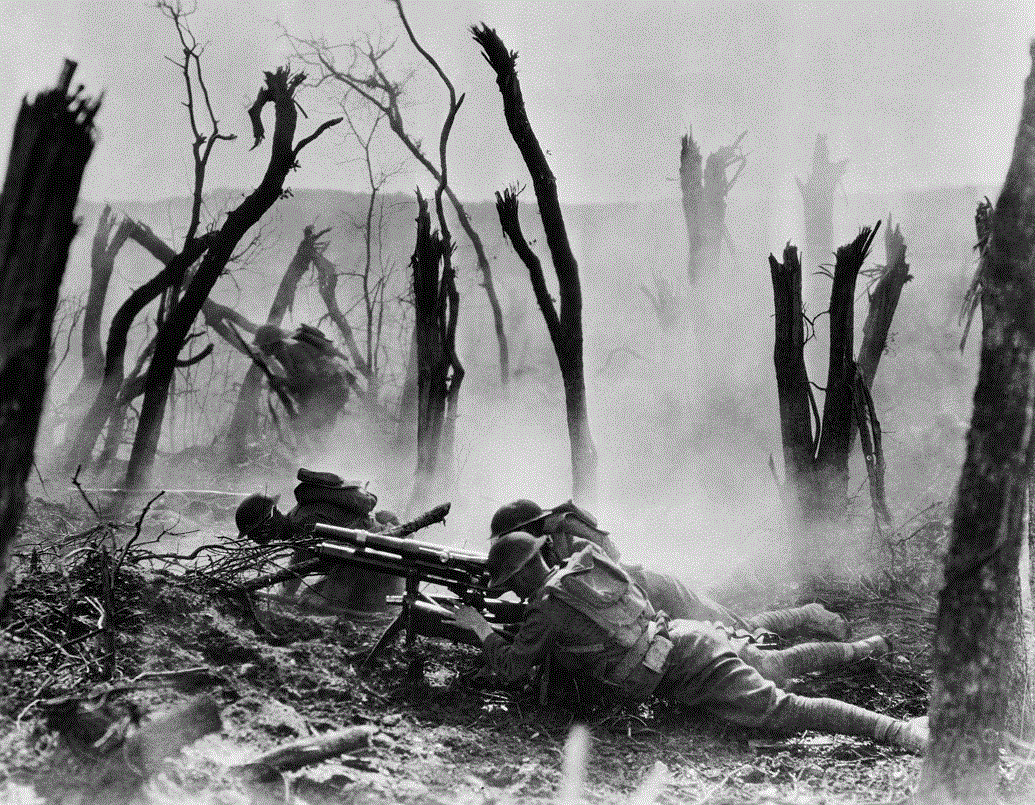September 26 in U.S. military history
1777: Gen. Sir William Howe outmaneuvers Gen. George Washington’s Continental Army and takes the American capital of Philadelphia. Historically, wars usually end when the capital city falls into enemy hands, but the American Revolution will continue for another six years.
1918: Though technically launched just before midnight on Sept. 25 with an intense artillery barrage, the Meuse-Argonne Offensive – the six-week long “greatest battle of World War I in which the Americans participated” – officially begins just before dawn when whistles are blown along the American trench-lines, and with fixed-bayonets, American soldiers climb over the top and begin their assault against the German lines. On this day alone, the Army awards eight soldiers with the Medal of Honor.
The battle, which begins with approximately 600,000 American soldiers and Marines, will see U.S. ranks swell to more than one million men. 26,277 Americans will be killed, another 95,786 wounded. But the campaign will end the war.
Meanwhile off the coast of Great Britain, a German U-boat sinks the Coast Guard cutter Tampa on convoy escort duty. Tampa takes 119 Coast Guardsmen and Navy sailors and 11 Royal Navy passengers with her to the bottom of the Bristol Channel – the greatest combat-related loss of life at sea for the Americans during World War I.
And in the skies, American pilots will shoot down 74 German aircraft and 15 balloons over the next six days.
1941: The Army officially establishes a permanent Military Police Corps. Although the Army never set aside a dedicated force until this date, the U.S. military had used soldiers for handling enemy prisoners of war, maintaining law and order, and route security for most of America’s wars.
1945: U.S. Army Lt. Col. A. Peter Dewey, the chief of the Saigon Office of Special Services, is mistaken for a Frenchman and shot in the head by Viet Minh forces, making Dewey the first American killed by communists in Vietnam.
1983: Shortly after midnight, Moscow’s early warning network reports the launch of an American intercontinental ballistic missile. Despite a period of high tensions between the U.S. and Soviet Union, Lt. Col. Stanislav Petrov realizes that it must be a glitch in the computer system since an American first strike would surely involve hundreds of missiles and does not initiate a retaliatory strike, as required by Soviet doctrine. Later, another the system reports the launch of another four missiles. This marks the closest the United States and Soviet Union come to accidental nuclear war.

Today’s post is in honor of Sgt. Howard Paul Allen, who gave his life for our country on this date in 2005. The 31-year-old native of Mesa, Ariz. was participating in a search-and-rescue mission in Baghdad when his vehicle was hit by an improvised explosive device. Allen had enlisted with the Navy before re-enlisting in the Arizona National Guard. He was serving with the 860th Military Police Company.
